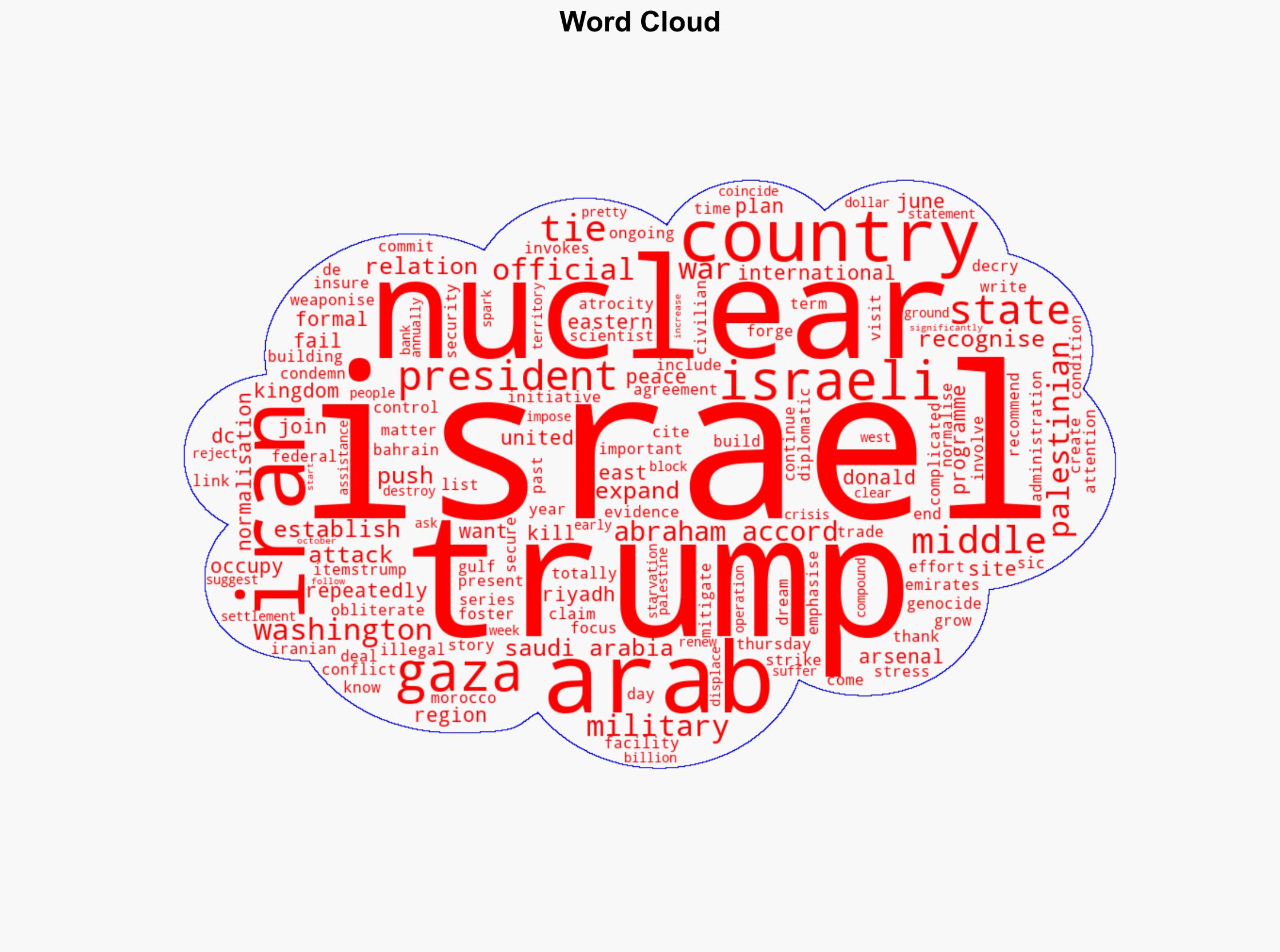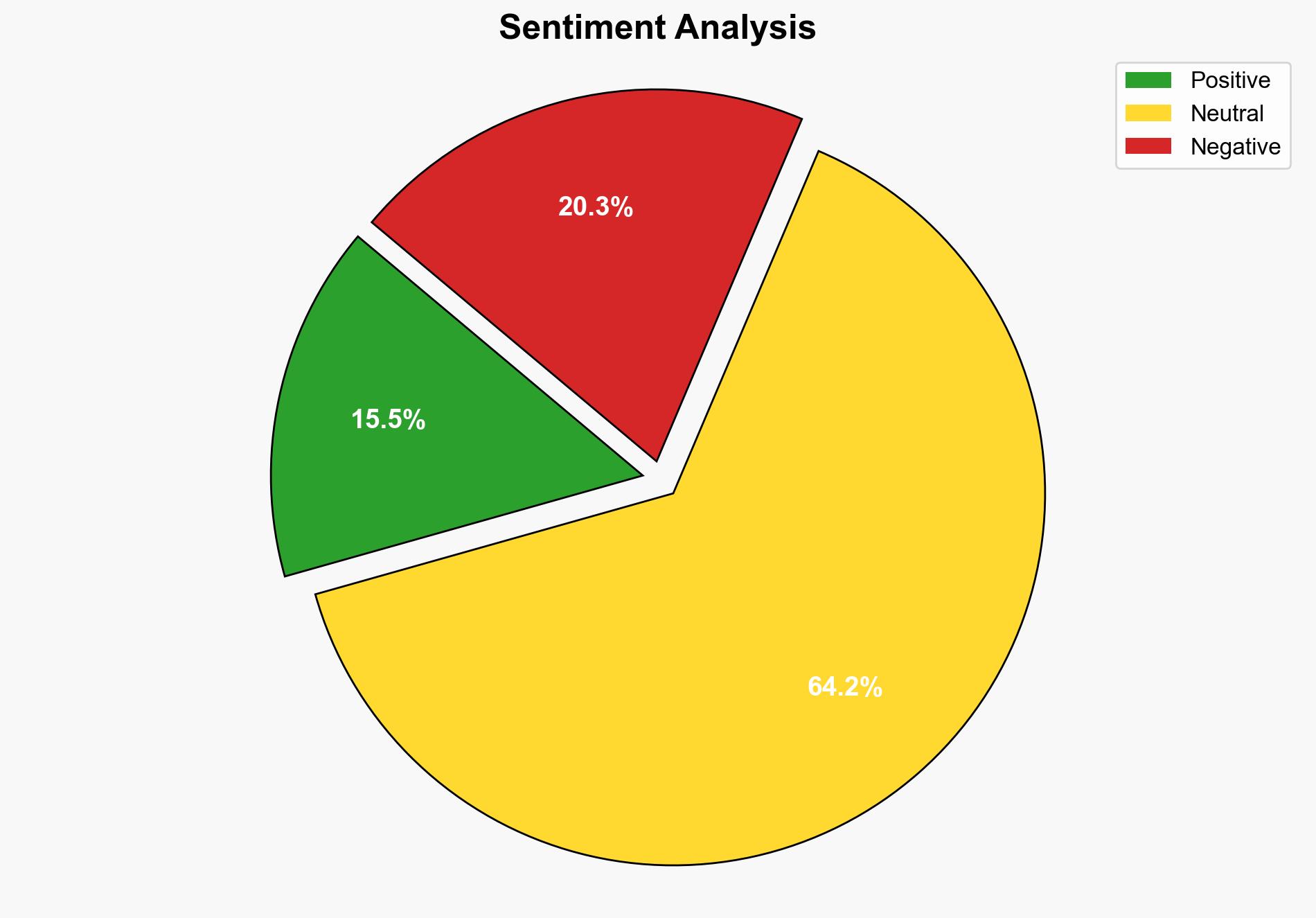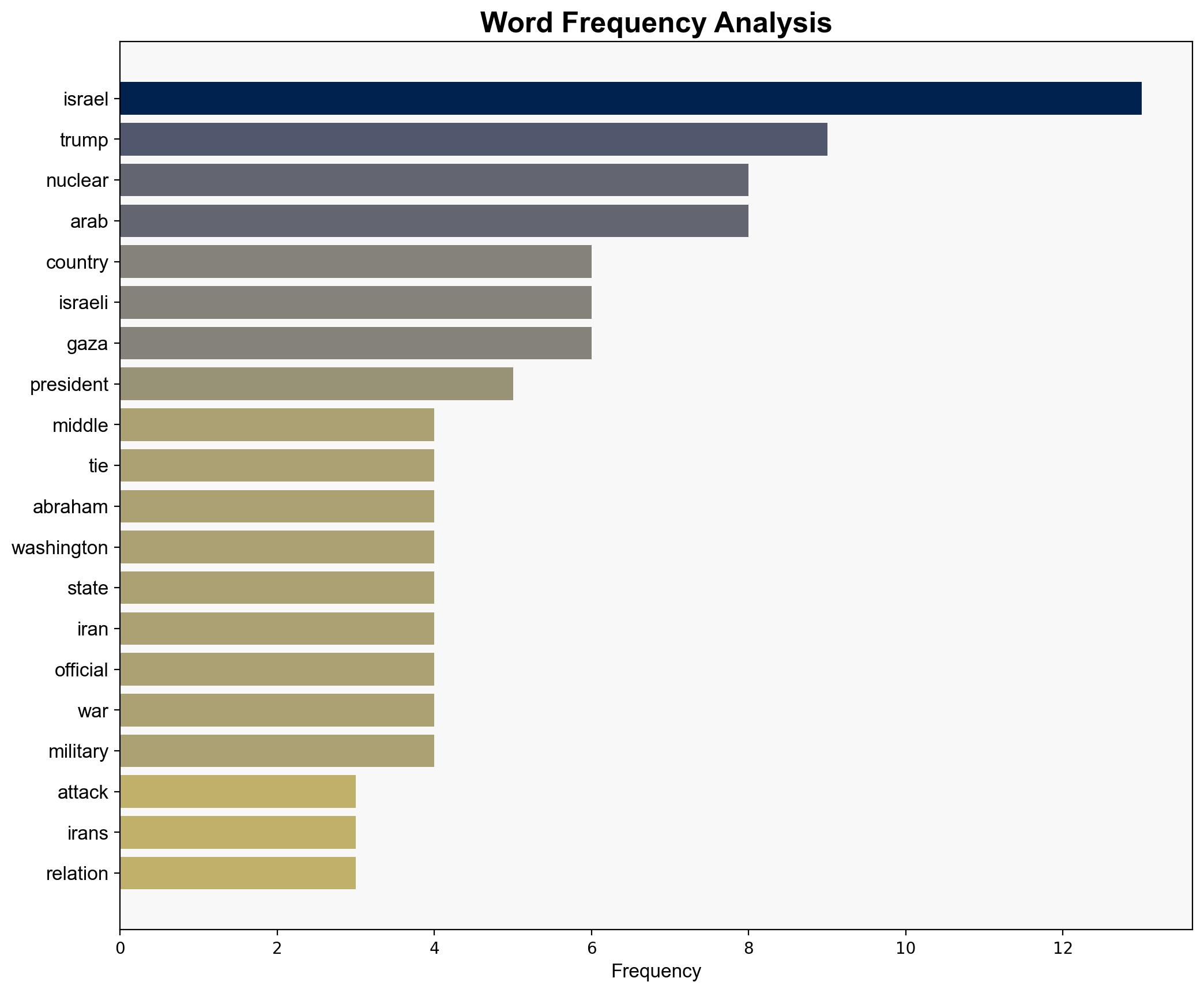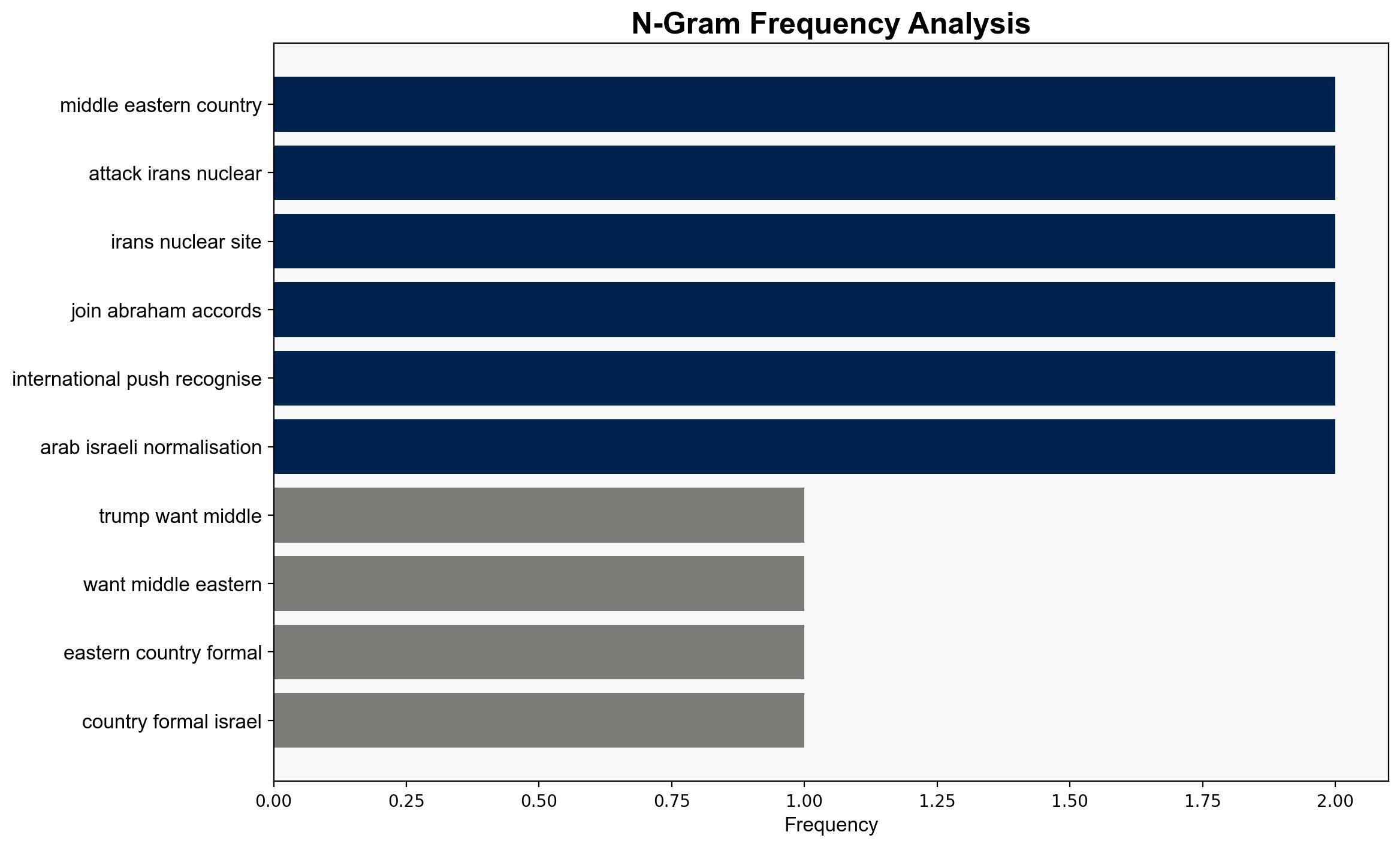Trump says he wants all Middle Eastern countries to have formal Israel ties – Al Jazeera English
Published on: 2025-08-07
Intelligence Report: Trump says he wants all Middle Eastern countries to have formal Israel ties – Al Jazeera English
1. BLUF (Bottom Line Up Front)
The strategic judgment is that Trump’s call for Middle Eastern countries to formalize ties with Israel is primarily aimed at countering Iranian influence in the region. The most supported hypothesis suggests that this initiative is part of a broader geopolitical strategy to isolate Iran and strengthen alliances against its nuclear ambitions. Confidence level: Moderate. Recommended action: Monitor regional responses and potential shifts in alliances, particularly Saudi Arabia’s stance.
2. Competing Hypotheses
1. **Hypothesis 1**: Trump’s push for normalization is primarily a strategic move to counter Iran’s influence and nuclear ambitions by strengthening regional alliances through the Abraham Accords.
2. **Hypothesis 2**: The initiative is a diplomatic effort to foster regional stability and economic cooperation, with less emphasis on countering Iran specifically.
Using ACH 2.0, Hypothesis 1 is better supported due to the explicit linkage made between Iran’s nuclear program and the call for normalization, as well as historical patterns of U.S. foreign policy in the region.
3. Key Assumptions and Red Flags
– **Assumptions**: The assumption that Middle Eastern countries are willing to prioritize relations with Israel over solidarity with Palestine. Another assumption is that Iran’s nuclear ambitions are the primary threat perceived by these countries.
– **Red Flags**: Saudi Arabia’s repeated commitment to the Arab Peace Initiative suggests resistance to normalization without Palestinian statehood. The lack of explicit support from key regional players like Saudi Arabia is a significant red flag.
4. Implications and Strategic Risks
– **Geopolitical Risks**: Potential backlash from Palestinian supporters and increased tensions with Iran could destabilize the region further.
– **Economic Implications**: Normalization could open new trade and investment opportunities but may also lead to economic sanctions or boycotts from opposing states.
– **Escalation Scenarios**: Military escalation between Iran and Israel could draw in other regional players, complicating diplomatic efforts.
5. Recommendations and Outlook
- Engage in diplomatic dialogues with Saudi Arabia and other hesitant states to address their concerns and explore potential compromises.
- Monitor Iran’s nuclear developments and regional military activities closely to anticipate potential escalations.
- Scenario Projections:
- Best Case: Broader regional cooperation leads to economic growth and reduced tensions.
- Worst Case: Increased regional conflict due to Iranian retaliation and Palestinian unrest.
- Most Likely: Gradual normalization with some countries, while others remain resistant.
6. Key Individuals and Entities
– Donald Trump
– Saudi Arabia
– Iran
– Israel
– Palestinian Authority
7. Thematic Tags
national security threats, geopolitical strategy, Middle East diplomacy, regional alliances




